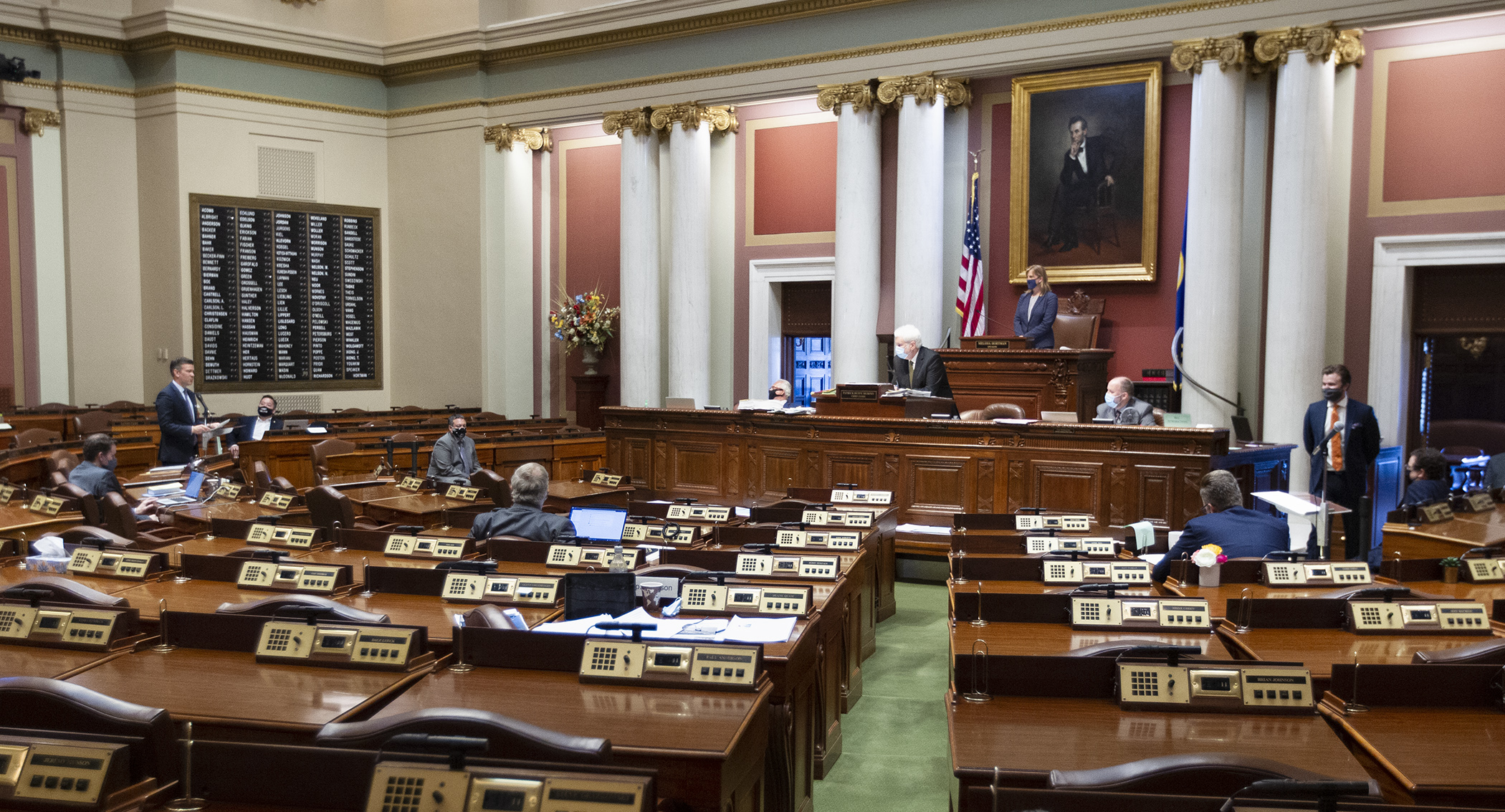House approves resolution declaring racism a public health crisis in Minnesota

Rep. Ruth Richardson (DFL-Mendota Heights) said Minnesota won’t fully prosper until opportunities are equitably provided to all citizens.
However, she said “behind the mask of Minnesota Nice” the state currently is one of the worst — if not the worst — when it comes to disparities between races in areas such as income, employment, housing and education.
She sponsors a resolution passed 82-40 by the House Monday that declares racism to be a public health crisis in Minnesota. The governor and the Senate are encouraged to adopt similar resolutions.
“We must confront the reality that inaction, indifference and systemic racism has harmed generations of indigenous, Black, Black-Mex and Asian Minnesotans,” Richardson said.
“This is not about Democrat vs. Republican. This is not about liberal vs. conservative. This is about right and wrong,” added Rep. Mohamud Noor (DFL-Mpls).
SSHR1 would also create a House Select Committee dedicated to examining the House’s legislative efforts though an “intersectional race equity lens,” considering the ways that racism “intersects with disabilities, immigration, gender, documentation status, and LGBTQ+ communities.”
The resolution further calls upon the House to “actively participate in the dismantling of racism” in other ways, including:
- working to ensure public confidence in the equitable administration of public safety;
- reviewing the House’s existing policies and practices, and setting measurable goals to advance equity;
- assessing human resources and vendor selection practices, including those related to hiring, promotions and leadership appointments;
- supporting local, regional and federal initiatives to dismantle systemic racism; and
- meaningfully engaging with communities of color.
“Each of us as an individual member, but certainly the House as an institution, can do so much more to understand the way that this institution continues to perpetuate inequality and to make sure that as we move forward through the next election cycle and creating the next House of Representatives, which we remake in certain ways every two years, that these questions of equity and racism are at the heart of our policymaking as an institution,” said House Majority Leader Ryan Winkler (DFL-Golden Valley).
Rep. Ron Kresha (R-Little Falls) expressed concern about what is not in the resolution.
For example, at one point the resolution says that racism is complex, but then it tries to “encapsulate racism,” which he views as impossible. “This body cannot define the impact or dimensions of racism with a simple majority vote and words on paper.”
Kresha, who was one of several members to pass on the vote, also said the resolution has an unintended consequence of trying to divide the House instead of unite.
“One of the best solutions to combatting racism is to have conversations and build shared experiences, allowing people to realize the challenges, difficulties and obstructions that exist in different communities,” he said. “This resolution is forcing an opinion based on words; this resolution is forcing members to decide whether they agree with all the words on a page rather than how to actually solve the real-world issue.”
Related Articles
Search Session Daily
Advanced Search OptionsPriority Dailies
Ways and Means Committee OKs House budget resolution
By Mike Cook Total net General Fund expenditures in the 2026-27 biennium will not exceed a hair less than $66.62 billion.
That is the budget resolution approved Tuesday by the House Ways...
Total net General Fund expenditures in the 2026-27 biennium will not exceed a hair less than $66.62 billion.
That is the budget resolution approved Tuesday by the House Ways...
Minnesota's budget outlook worsens in both near, long term
By Rob Hubbard It looks as if those calling for less state spending could get their wish, judging from Thursday’s release of the February 2025 Budget and Economic Forecast.
A state su...
It looks as if those calling for less state spending could get their wish, judging from Thursday’s release of the February 2025 Budget and Economic Forecast.
A state su...